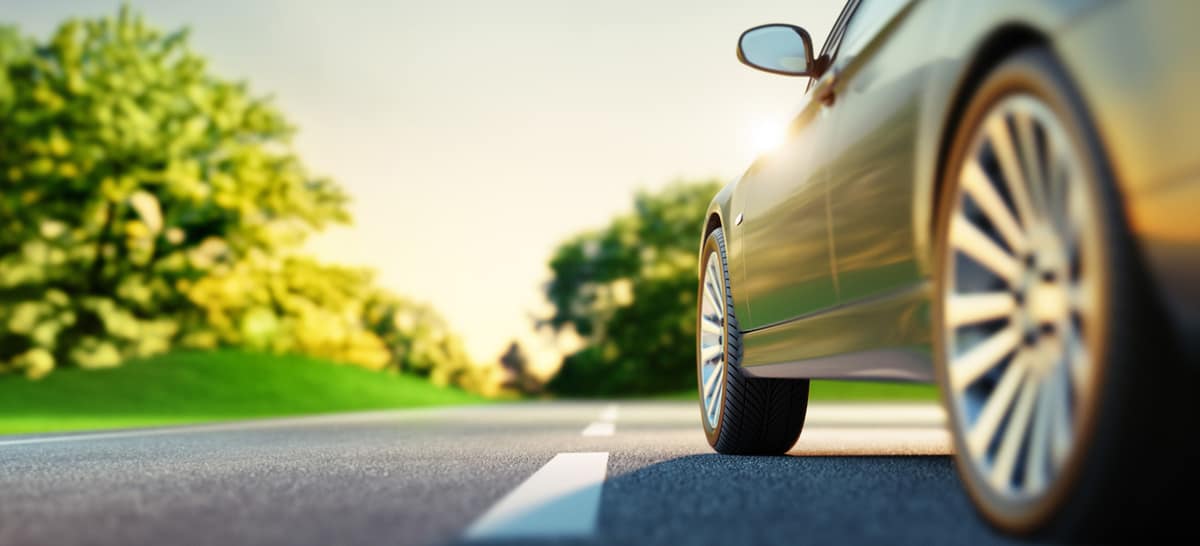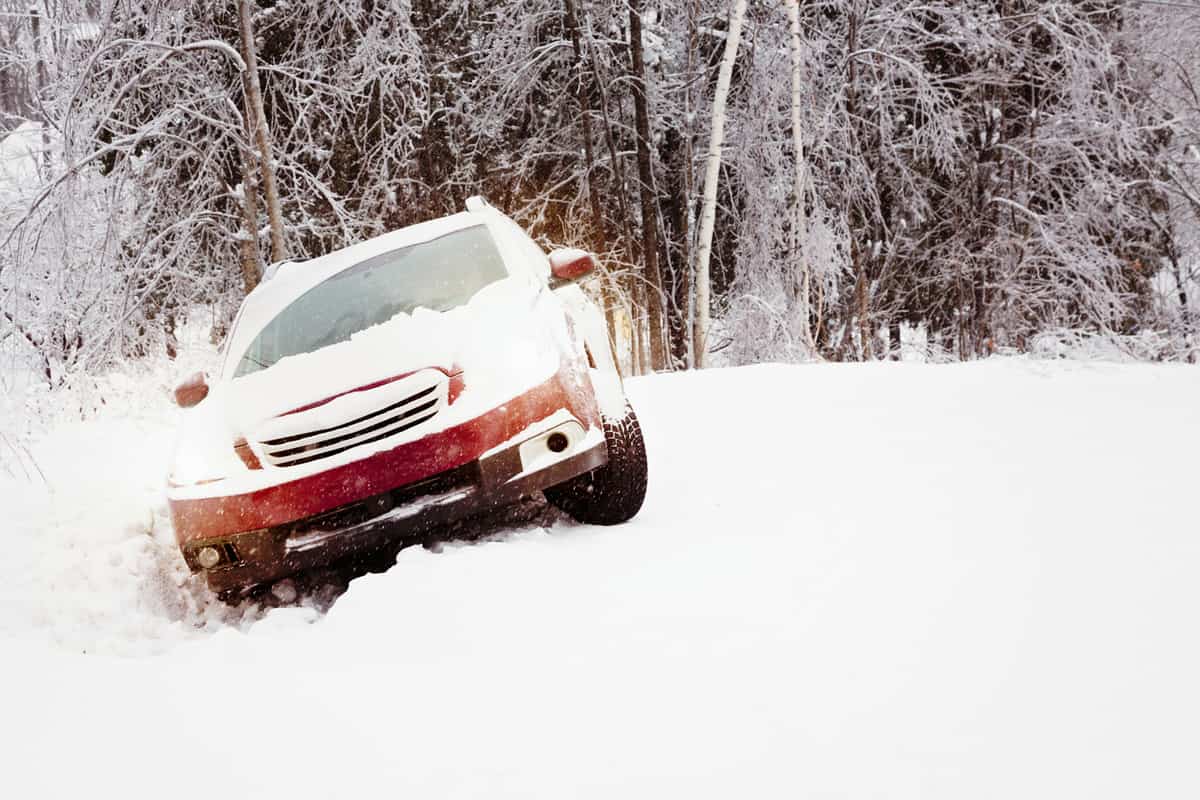Checking your driving history can sometimes feel like a complicated, endless process. Do you need to see all of the cars you have owned but don't know where or how to do this? Well, we've done some digging and have the answer to share. Let's get into it below.
To find all of the vehicles you have owned, go into your local DMV and have them check your record according to your license. The Department of Motor Vehicles keeps a comprehensive individual record of its drivers, including all cars associated with a given license.
Of course, the DMV will only be able to find cars that you have under your name, so make sure you know who drove and owned what vehicle.
As we begin, we will cover all things vehicle history and discuss how to find how many cars you have owned. Whether you need to see your past purchases or want to take a trip down memory lane, we're here to help. With that said, let's dive right into this topic!
![Carport in a residential area, How To Find Out All The Cars You've Owned [Inc. VIN Lookup]](https://vehq.com/wp-content/uploads/2022/04/How-To-Find-Out-All-The-Cars-Youve-Owned-Inc.-VIN-Lookup.jpg)
How Can I See All The Cars I've Owned?

If you're curious about the vehicles, you may have owned, leased, or driven, finding this information shouldn't be too hard. First, you can check any given car's VIN, which will tell you its make and model.
However, if you don't have that information, you can take a trip to the local DMV. As we said, the Department of Motor Vehicle will have an extensive record of your driving history.
That record includes past vehicle ownership. Luckily, all you need for this is your driver's license. Think of your driver's license number as identification for your time on the road.
You can also see driving history, including tickets, past accidents, and even expired licenses.
Can I See All The Cars I've Owned Without A Drivers License?
Yes, if you have the license plate numbers of past vehicles, you can find their history. To do this, you'll need to go to the DMV and have them run a background check using that exact plate number.
Although this method is great for those without identification, not everyone knows their plate number. For example, it's unlikely you'll know a car's plate from ten-plus years ago and be able to show it to the DMV.
However, if you have insurance, you may be able to obtain records about previous vehicles through them. Of course, they will only have the records for cars they covered, so that is one takeaway.
Regardless of how you try to find your vehicle ownership history, always come prepared with as much ID as possible. Private and public agencies will need identification to go into your record.
What Is The Easiest Way To See My Vehicle Ownership History?
If you want to see your vehicle history for free, your best bet is to use its VIN. This is your vehicle identification number, which you should have labeled on one of your car's doors.
Knowing your VIN can come in handy for vehicle ownership, accident reports, and even price/past sales. In general, you will use this first to find the cars you've had, and in the worst case, you go to the DMV with your license.
It might be good to take a photo of the VIN on all the vehicles you drive, which you can refer back to later on. Again, this isn't the only way to find ownership history, but it will be the fastest/easiest.
Can I Check VIN History For Free?
Yes! There are plenty of free websites that allow you to check a VIN history for free. Most notably, the National Insurance Crime Bureau, VehicleHistory.com, and iSeeCars.com will give this information to you without asking for a credit card.
All you need for these websites is your VIN, which makes checking ownership, accident, and insurance history easy.
Again, you can always go to your local DMV for a free record of your license history, but it won't be as quick as doing a web search.
How Do I Read A VIN?
For those stuck on how to "decode" a VIN, this isn't as hard as it seems. First, take a look at digits 1-3. These represent the WMI (World Manufacturer Identifier).
Next, check out digits 4-8. These will represent the vehicle descriptor (what type of car it is). After that, take a look at the ninth digit. This one is a check digit.
Furthermore, digits 10-17 will identify your vehicle. And lastly, the eleventh digit is the manufacturer's plant code. If you still have no idea what this means, simply pasting your entire VIN into a web-based search will pull this information for you, so no worries.
Do All Cars Have A VIN?

As long as your car was built after 1981, it will have a VIN. As we covered, vehicle manufacturers stamp their products with a unique, one-of-a-kind number that allows you to keep a record of their time on the road.
Every VIN will be 17 characters. Decoding can be complex, so it's better to write down or photograph the VIN on your car and then upload it onto a free history-checking website.
Think of a car's VIN as its fingerprint. Just like we have a social security number, your vehicle has a special code.
Why Would A VIN Not Show Up In A Report?
If you try to check a car's VIN and nothing shows up, one of two things is wrong. First, make sure you input the exact 17 digits your car shows into the history report.
Second, check to see if there are any letters in the VIN. If so, someone has fraudulently created a fake VIN to conceal past vehicle ownership/history.
In rare instances, people can alter the VIN of a vehicle, essentially stopping future owners from being able to access its history. This is a crime and is punishable by law.
If you suspect someone has tampered with the VIN on your vehicle, find an attorney and discuss your options regarding the situation. You'll often be able to sue the person/company that issued your car for misrepresentation, so hope is not all lost.
Does Carfax Show Previous Owners?
If you're trying to find the previous owner of a vehicle, using something like Carfax can be helpful. Although the company won't disclose personal owner contact information (unless needed for a legal case), it does give historical ownership/vehicle data.
For example, Carfax is popular for checking accident reports on a car before buying it. That can be helpful if your seller isn't 100% transparent about history or doesn't know it.
Like the other sites we listed earlier, you will need a vehicle's VIN to conduct a Carfax search, so make sure to have that when the time comes.
What Shows Up On Carfax?
Using Carfax can be an easy way to find various details about a given vehicle. Most importantly, this online software will give you ownership history, dating back to when your car was manufactured.
Additionally, Carfax will tell you odometer reading, the existence of a branded title such as a salvage/junk title, or past registration as a fleet vehicle. The company will also give you an extensive accident report, which can come in handy for assessing any potential damage.
So if you have the VIN and want to find this information quickly, Carfax is certainly a great option.
Is It Safe To Give A VIN Online?
Yes, it is safe to give a VIN online most of the time. Considering your VIN history can't be altered through a third party, providing it for a history report won't do any damage.
Like your driver's license, a VIN is unique. That means that it cannot be replicated or reused by someone else. It's surprisingly recommended to show the VIN of any vehicle you're buying/selling, as it allows everyone involved to see the history.
Again, you don't need to provide this information for everyday driving activities, but it is good to know/have when the time comes.
Why Do You Need To Know The Cars You've Owned?
In general, once someone sells a car, they no longer need to know about it. However, if you are curious or even need to know how much you spent/received selling it, that information can be helpful.
Especially if the car had an extensive accident history, or was stolen, accessing its report can answer your questions. As long as you keep a personal record of VINs, license plates, or insurance policies, you shouldn't have trouble keeping tabs on the cars you've previously driven or owned.
Worst case scenario, you'll need to bring your driver's license to the DMV and have them do a check for you, which won't be very difficult anyways.
To Wrap Things Up

Whether you recently sold a car or want to keep tabs on the vehicles you've had, knowing how to do this can be tricky. From what we found, you can find your personal ownership history by contacting the DMV and having them run a background check on your license.
They will be able to find the cars you've had in your name and other related information. Furthermore, if you know the VINs of your past vehicles, this is another easy way to find ownership history.
Regardless, always keep track of your car's VIN, insurance, and past accident history, whether it be through the DMV or third-party online software.
Made it to the end? Check out these helpful related vehicle posts below!
6.7 Powerstroke Mods That Won't Void Warranty [5 Options Explored]
Super White Vs. Blizzard Pearl Car Paint - What's The Difference?

Can I find the cars I’ve owned by only my name as I don’t have all the Vin numbers?
I’m looking for my history since 2000